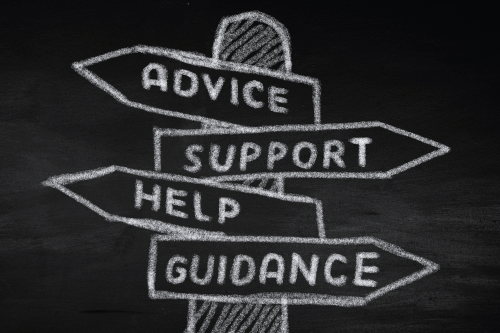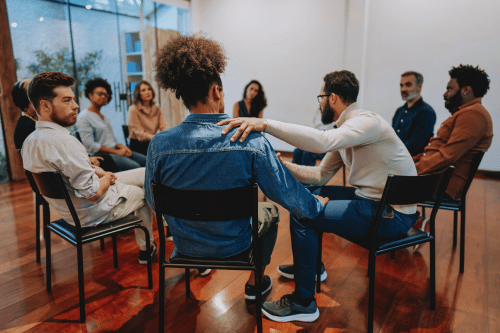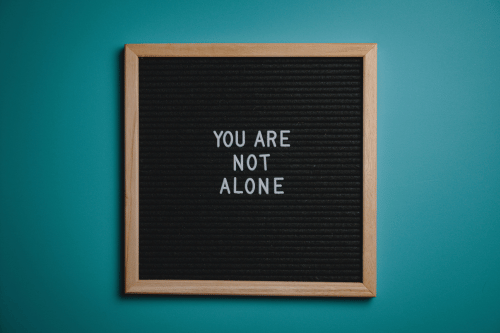

Parents of children struggling with substance use disorder often feel lost, overwhelmed, and isolated. This blog explores support groups for parents of drug addicts, offering insight into how these communities help families cope with the challenges of addiction. Whether your child is actively using or in recovery, joining a group can provide clarity, strength, and tools for healing.
These support groups serve as a valuable resource for navigating the emotional and practical impact of drug addiction on the entire family. Many also offer evidence-based strategies that help parents better understand the disease of addiction while protecting their own mental health.
Addiction is a chronic brain disease that changes how a person thinks, feels, and behaves. The disease of addiction can affect any family, regardless of background. Recognizing it as a medical issue helps families focus on treatment and recovery, not blame.
Substance abuse disorder impacts not just the individual, but the entire family. Parents may struggle with guilt, anxiety, or enabling behaviors without realizing it. Support groups help shift this focus from shame to support.
Support groups for parents create a safe space where participants share stories, struggles, and solutions. These groups offer emotional relief, reduce isolation, and provide useful strategies to handle everyday challenges.
They also help families understand that they are not alone in facing addiction. Parents gain key insights from others who have faced similar situations and found a way forward.

Families Anonymous is a 12-step program focused on supporting relatives and friends of people with substance use challenges. This group operates similarly to Alcoholics Anonymous but focuses on the family’s recovery. It serves as a valuable resource for parents and loved ones dealing with a child’s substance use disorder.
The program teaches evidence-based strategies to address addiction while prioritizing emotional stability and mental health. Families Anonymous acknowledges that drug addiction is a complex issue that impacts the entire family. Members learn how to detach with love, avoid enabling, and regain control of their lives while supporting their loved one’s recovery.
It encourages participants to focus on their well-being, set boundaries, and stop enabling the addicted person. Meetings are free, open to all, and structured to protect anonymity and mutual respect. For many parents, joining Families Anonymous marks the first step in healing from the effects of addiction as a family disease.
Al-Anon Family Groups and Nar-Anon are two long-standing programs built on the 12-step model. Al-Anon helps families affected by alcohol addiction, while Nar-Anon focuses on drug addiction. Both groups provide a safe space for the adult family members of addicts to find support, encouragement, and understanding.
These programs recognize addiction as a family disease and offer specific tools to support the healing of adult family members. Parents gain practical strategies to cope with their child’s substance abuse disorder and the emotional fallout it causes. The structure of these meetings helps reinforce positive habits and personal growth.
Each meeting includes shared experiences and readings that promote recovery and self-care. Members often form a supportive network of friends of people facing similar struggles. For families in Orange County, these groups are a vital tool in coping with the ongoing effects of addiction and supporting long-term recovery.

Some parents prefer support groups outside the 12-step format. Self-Management and Recovery Training (SMART) Recovery offers science-based strategies for managing addiction-related stress. SMART Family & Friends focuses on communication skills and positive reinforcement.
The Community Reinforcement Approach & Family Training (CRAFT) is another evidence-based strategy. It teaches families how to influence a loved one’s behavior and improve their own mental health.
Drug addiction often overlaps with mental illness, creating more complex challenges for families. Substance use disorder frequently co-occurs with conditions like anxiety, bipolar disorder, or PTSD, adding layers of difficulty to recovery. Parents may feel unprepared to handle depression, anxiety, or trauma tied to substance abuse.
Support groups connect families with vital tools and resources to handle co-occurring disorders. These groups often include education on risk factors, effective coping methods, and communication techniques that reduce conflict and stress. With the help of peers and health care providers, families learn how to support recovery without sacrificing their own mental health.
These groups can also help parents ask the right questions when working with health care providers. By addressing both the substance abuser’s needs and the family’s emotional well-being, support groups play a key role in long-term healing. Their focus on practical strategies makes them an essential part of managing the effects of addiction and mental illness within the family.

Some parents cannot attend in-person meetings due to schedules or privacy concerns. Online support groups offer flexible access and confidentiality, serving as a valuable resource for those balancing work, caregiving, or transportation barriers. Virtual platforms remove obstacles, giving parents access to support groups that address addiction care from anywhere.
Forums, webinars, and video calls allow parents to connect with others anytime. These online spaces serve as a safe space for open dialogue, offering peer advice, emotional support, and links to recovery resources. Participants can learn from other families of addicts, gain key insights, and stay engaged with tools for parents no matter where they live.
Online options can be especially helpful for families in rural areas or those dealing with stigma. Websites for Families Anonymous, Al-Anon, and SMART Recovery provide easy access to digital meetings. These platforms help extend evidence-based strategies and family engagement opportunities to a wider community of advocates working to address substance use challenges across the country.
Family involvement is a key part of successful addiction care. When the entire family receives support, it often leads to better outcomes for the addicted person.
Family therapy sessions, support groups, and parent coaches all contribute to a stronger recovery network. At Sullivan Recovery, we emphasize family engagement through structured outpatient services and ongoing family support.
Parent coaches offer vital tools for families of addicts by working one-on-one with parents facing substance use challenges. These professionals help adult family members improve communication, set boundaries, and apply evidence-based strategies to support both their child and their own mental health.
Beyond individual guidance, many parents take part in addiction advocacy, using their experiences to support others and drive change. They often join a community of advocates working to address pressing addiction issues, improve access to recovery resources, and raise awareness about the effects of addiction on the entire family.
Most meetings follow a format: a reading or reflection, followed by open sharing. Newcomers are welcome to listen until they feel ready to participate. Each person is respected, and no one is pressured to speak.
Confidentiality is a top priority. Parents are free to talk without judgment or fear of exposure. These meetings often become a lifeline during times of relapse or emotional stress.
Support groups offer a safe space where families of addicts can gain insights on addiction prevention, recovery resources, and the effects of addiction on adult family dynamics. Whether dealing with opioid addiction or another substance, participants benefit from learning how to address addiction without feeling alone or unsupported.
Sullivan Recovery offers outpatient treatment that includes family education and group therapy. Our programs treat both drug and alcohol addiction using evidence-based strategies.
We know that substance use disorder impacts more than one person. That’s why we work with parents and families through optional family support services, education, and guidance from licensed clinicians. Our Family Support Group sessions provide a safe space for adult family members to process the emotional effects of addiction and build healthier communication. By involving the entire family in recovery, we help address addiction at its roots and support long-term healing for everyone involved.

Support groups provide parents with vital tools for managing the effects of addiction, including boundary-setting, healthy communication, and stress management techniques. These tools help families of addicts stay grounded during an ongoing addiction crisis and reduce the emotional toll on adult family members.
Many groups share evidence-based strategies through books, worksheets, and meetings that focus on the disease of addiction and how it impacts the entire family. These practical strategies empower parents with key insights on addiction prevention, mental illness, and recovery resources to support long-term healing.
Watching an adult child struggle with drug addiction can cause fear, sadness, anger, and deep emotional distress. The effects of addiction extend beyond the individual, creating long-term strain on the entire family and challenging parents’ mental health.
Parents may grieve the loss of the relationship they once had or feel powerless during the addiction crisis. Support groups for families of addicts provide a safe space to process these emotions and access valuable resources. Through shared experiences and key insights, parents learn that while substance use disorder is a family disease, recovery is possible—and they are not alone in the journey.
Groups like Families Anonymous, Nar-Anon, and Al-Anon operate nationwide. Many offer local chapters in Orange County, including Mission Viejo.
Parents can also seek resources from addiction treatment centers like Sullivan Recovery. We provide referrals, educational workshops, and family sessions tailored to each situation.
Many support groups share family stories that show triumph over addiction challenges. These narratives remind parents that recovery is possible, even after years of relapse.
Hearing how other families found healing can inspire action and hope. These family stories are transformative because they show change, growth, and renewed connection.
Substance use disorder can isolate parents and strain the entire family. Support groups for parents of drug addicts create a safe space where families of addicts connect, share, and find strength in community. These groups offer valuable resources, practical strategies, and emotional support during every stage of recovery.
At Sullivan Recovery, we understand the deep impact of drug and alcohol addiction on both individuals and their loved ones. Our outpatient programs in Orange County use evidence-based strategies, including family involvement, to address addiction and promote lasting recovery. If you’re a parent seeking guidance, our team of experts delivers care that supports adult family members and helps rebuild family connections disrupted by the disease of addiction.
3. Families Anonymous
4. Nar-Anon Family Groups
At Sullivan Recovery, as an in-network provider we work with most insurance plans, such as:
And More
If you or a loved one are struggling with mental health challenges or substance abuse, reach out to Sullivan Recovery today. Our team of compassionate professionals is here to support your journey towards lasting well-being. Give us a call at 949-836-7180.
Yes. Many support groups welcome parents regardless of whether their child is in treatment. These groups focus on helping you cope, set boundaries, and improve your emotional well-being—even if your child isn’t ready for recovery.
Yes. Some support groups cater specifically to parents of minors or young adults, addressing unique challenges like school issues, legal involvement, and early intervention. You can often find these groups through local treatment centers, community coalitions, or national organizations like Partnership to End Addiction.
Sharing is always optional. Most support groups allow newcomers to listen until they feel ready to participate. There’s no pressure to speak, and anonymity is a core principle in most programs like Families Anonymous and Nar-Anon.
You can search for support groups through trusted directories like SAMHSA’s Treatment Locator or by contacting local addiction treatment centers like Sullivan Recovery. Many groups also list meetings by region on their websites, including options in Mission Viejo and surrounding areas.